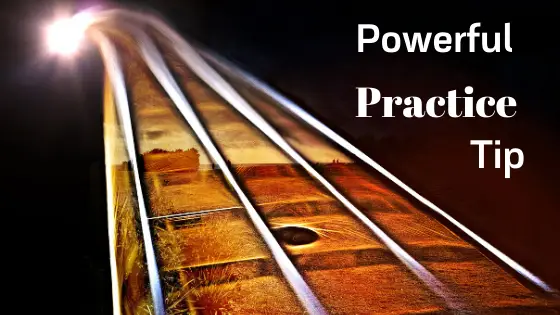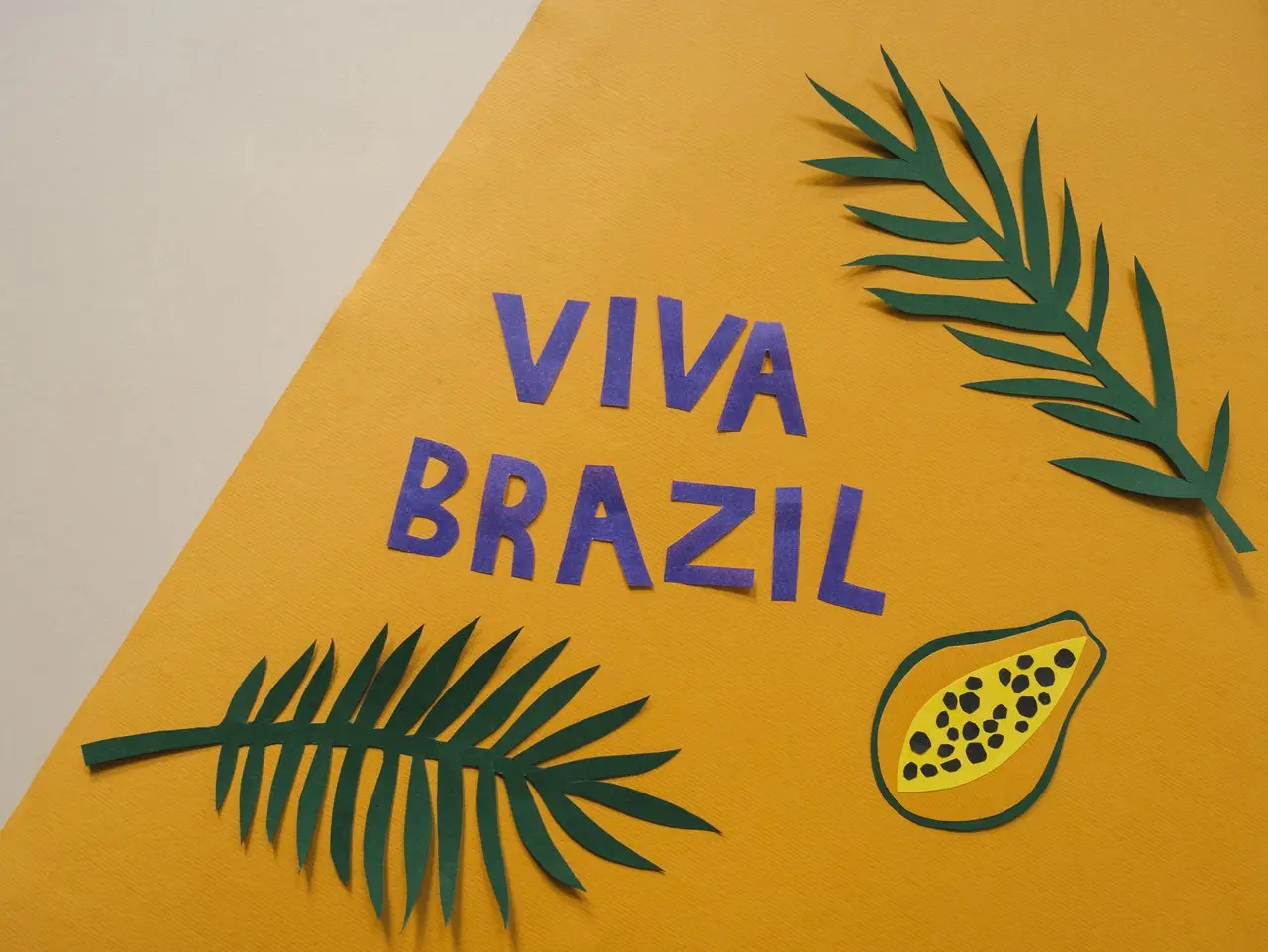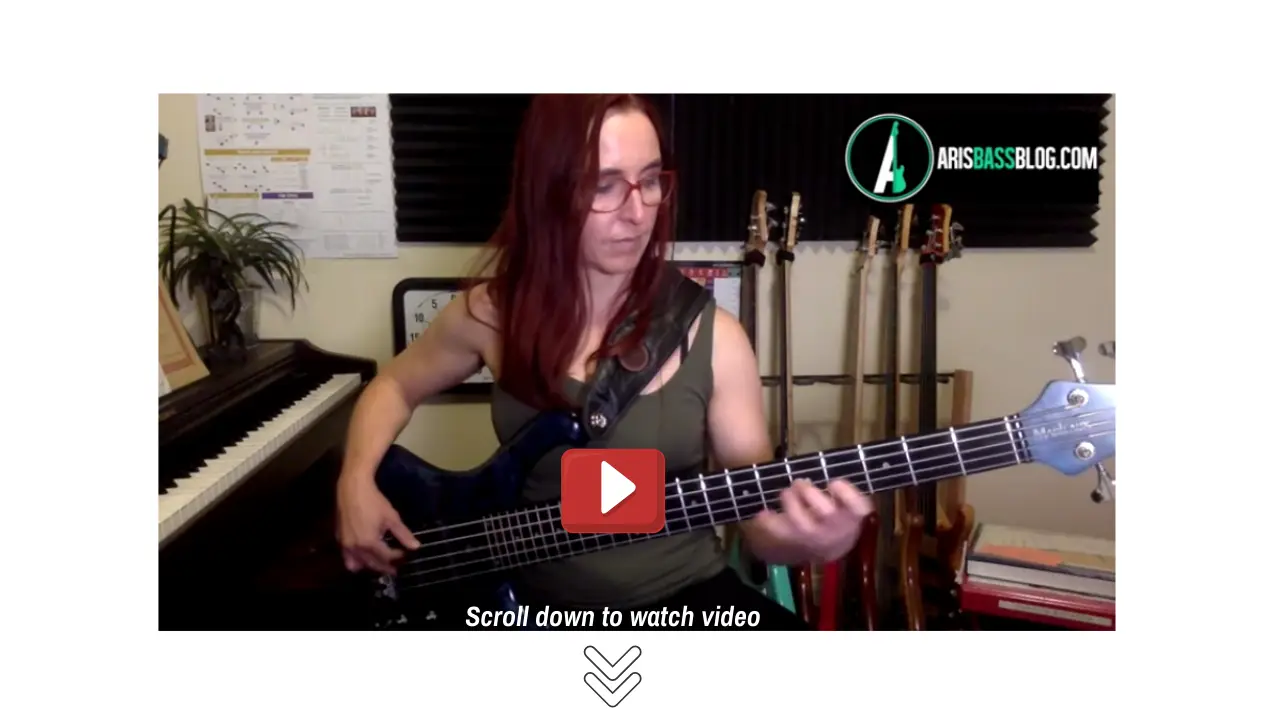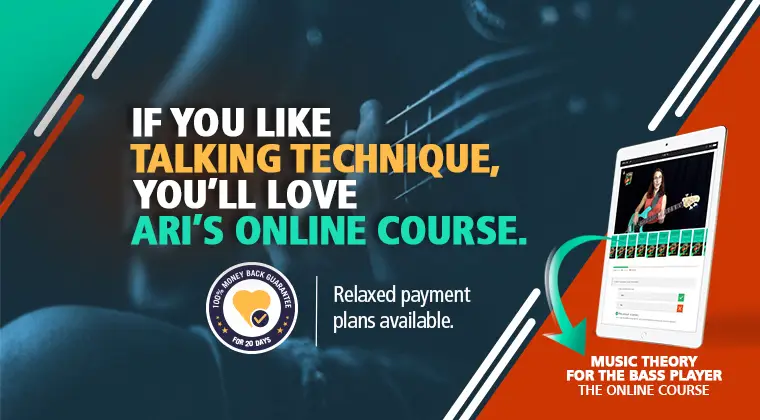Powerful Practice Tip
Reframing your practice…
Wolf Wein and Ariane Cap
A crucial aspect of learning is coming to the point (although it’s not actually a point, but rather a stage on the journey) where you know you can do something. You are aware of your skill – aware of what you can do and what you can not yet do. I call it enhanced self-awareness.
As a simple example, take playing a two-octave major triad arpeggio – played with a specific fingering, with a clean tone, legato, and an even rhythm. What tempo can you play it…
- without any “false starts”
- reliably
- with such certainty that there is no doubt that you can execute it each and every time
An important part of this means keeping track of your progress by making a practice diary, mapping out what to practice, structuring your practice sessions (short term and over the long term) and setting smart goals.
Another, less talked about part of this process is becoming aware of the state of mind that goes along with “I can do it” (cleanly and at the goal-tempo, with such and such phrasing etc.).
We all have many things in our lives where we have an inner certainty that we can do something every single time without fail. Think of some simple everyday tasks that we do like filling a glass with water, or plugging in your phone, or boiling an egg.
When I think about doing one of them – not much seems to be going on in my mind. I simply think about doing it and then I do it. I execute and it’s done. No big deal, right?
Or so it seems…
Actually what I am experiencing is exactly what I work towards with practicing. The goal is to reach the point or stage in your learning where what I am practicing becomes so effortless (as in, no mental strain) that something that once was a challenge, is now simply no big deal:
- No longer is there an inner dialogue about whether or not I can do it
- No longer am I wrestling with what the difficulties are
- No longer am I thinking about what I need to pay attention to in order to get it right
- And no “inner judge” to remind me of the last time I didn’t do it quite right
But what is there – and this is crucial – is an inner representation of the task at hand and how the outcome will sound/look/feel. The attention is on the actual doing of the task – not in words that evaluate it; maybe in words that guide (like when I internally recite a chord progression).
When you become aware that you’ve reached this “I can do it” state of mind, you will start to recognize it sooner and more quickly. You will also be able to recognize aspects that are outside of this state. These are not to be judged, condemned or wished away. They are important parts of the feedback process and information for further learning.
Here’s my recommendation:
After each practice session – in fact, after each item that you practiced – pause for a few moments and check your mental representation of what you just did. What aspects feel like “I can do it”? Acknowledge them. Make them conscious for a moment.
This is super important.
And what does not feel like it’s there yet – that’s the stuff to keep working on.
Using the two-octave arpeggio example I mentioned previously, this could be: “I can do it with eighths at tempo 70!” Yes!! Acknowledge this!
But if it’s: ”It gets a bit sloppy above 70bpm, though. At tempo 90, I start to miss notes.” That’s okay and great to know, too! (Because it tells you precisely what to work on!)
Add as many details you can think of like:
- Is there any tension in my shoulders or hand?
- How does it sound? Are the notes even in length, volume, and sound? Is there any buzz?
What happens when you make this a habit?
Here’s what happens when you start acknowledging details, sharpen your awareness and remind yourself of what you can already do well:
- Your confidence grows
- You will retain what you learned better and on a deeper level
- You will know what skills you can rely on – especially when you are faced with stressful situations like auditions, gigs, studio recordings, etc.
- You can remember all these moments of acknowledging your skill
- They become an internal powerhouse and a foundation from which you can tackle new challenges
- You will find yourself enjoying the moment, and giving yourself over to the music rather than “just playing” the notes.
One more thought
It may seem like there is less room in my mind for tasks that I can do effortlessly than for the things I’m still working on. Not so. It’s just different. It feels like there is less because there is no judging, no worries or anxiety – which feel heavy and burdensome.
There is awareness – which corrects me if something isn’t executed quite right – there is a representation of the outcome (like the line I’m playing). There is flow – a fully engaged mind that seems empty yet is actually filled with the task at hand.
That feels effortless, yet directs all its energy into doing here and now.
Read: Why just keep playing is not working
STOP – Performance versus Practice Modes
Efficient Practice Hacks: Sleep
Brazil Trip with Stuart Hamm
To say I had a good time in Brazil is an absolute understatement!
Seeing dear old friends and making new ones was the highlight of it all. To get to make music with the incredible Stuart Hamm and to spread solo bass and duo bass vibes
When vijazz invited me earlier this year to come to Brazil…
About vijazz
I had worked with them before GEsmeralda
Playing with Stu Hamm
Two shows
A clinic
An interview
Meeting Brazilian bassists
Jota Quest
The magic of making music together
Check out Stu’s itinerary
Ask Ari LIVE from Brazil featuring Stu Hamm
Alberti Bass for Finger Fitness and Theory Shedding [Video]
TalkingA common question I hear a lot has to do with practice routines:
- “What are some good exercises to improve my technique?”
- “What should my practice routine look like?”
- “How can I be more creative?”
- “How can I make music theory accessible and practical?”
Well, I love, love, LOVE exercises that practice more than one topic at a time, especially technique and music theory. If you manage to make some beautiful music on top of it with that, all the better :).
Here, for example, is a Talking Technique episode where I hope to achieve all that:
The Alberti Bass Talking Technique Episode
This exercise definitely sheds your fingers quite a bit (left and right!) and it gives you a good theory workout as we are going through the diatonic cycle in minor.
In it, I explain the “Alberti-inspired” keyboard figures that we can adapt to the bass. Domenico Alberti was a composer in the 18th century. His left hand piano figures provide inspiration to this day and also give us some heavy-duty technique shedding: string crossing, right-hand shedding, and coordination.
Exercises like these are a beneficial part of a smart practice regimen. In this lesson, we’ll go over these Alberti-inspired figures over the diatonic cycle in minor.
Be sure to download the PDF that comes with Ari’s Alberti Bass episode for this lesson and follow along with the video.
A new episode of Talking Technique is going live next week! Make sure to subscribe at notreble.com and never miss an episode.
Check Ari’s Talking Technique Episode on the Alberti Bass here
Related Topics: 2-octave triads, beautiful practice







